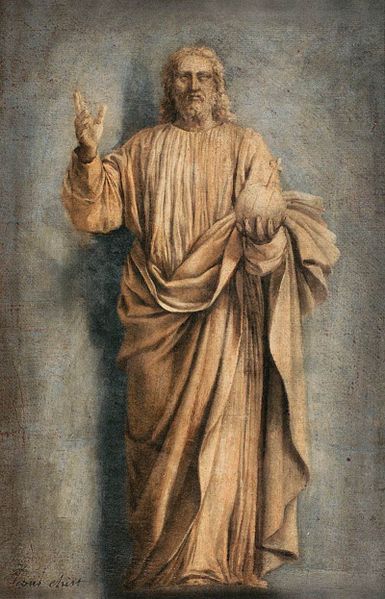Ezra Pound, the American poet, once wrote of the Catholic Church: “Any institution that could survive the picturesqueness of the Borgias has a certain native resilience.” True, but cold comfort. Survival is one thing – even assured by Jesus Himself. But at this moment, everything beyond mere survival seems in doubt.
To shape the future, we need to understand the past, but in a Catholic way. And for that, we should follow Dr. Johnson’s advice to “clear your mind of cant.” It’s cant, he told Boswell, when we say things not quite true in public: “You may talk in this manner; it is a mode of talking in Society; but don’t think foolishly.”
There are three “Cs” in our discussions about the abuse crisis that must be cleared of cant: the Church, clericalism, and corruption.
It’s cant, in my view, when we say “the Church” failed in handling abuse. Still worse, that “we’re all responsible.” The “Church” did not fail. Specific individuals committed specific acts. Other specific individuals either passively ignored what they knew or actively covered up. They failed, sometimes aided by networks, formal or informal. Not “the Church.”
It’s cant to broaden the guilt like this, which only diverts attention from the true problem. In the meantime, the situation is like an infected splinter. Until the splinter comes out, attempts to “heal” the inflammation will fail. We’ve had many expressions of regret and calls for forgiveness. They probably have to continue to calm the waters. But they will only be effective if the specific causes of the infection, specific individuals, are removed.

It’s not enough if civil authorities uncover bad behavior – though that helps. The Church itself now has to show that it can hold not only priests but bishops responsible.
In practical terms, we need a new tribunal – whether an extension of the National Review Board can do the job remains to be seen. By seen, I mean heads must roll, including some episcopal heads, or people will conclude we’re just talking. That will require people with backgrounds in law enforcement and in dealing with child abuse. But we also need some journalists who’ve seen how criminal networks operate in public. Someone like John Kass, a Greek Orthodox reporter at the Chicago Tribune who has followed the Chicago mob. Among Catholics, Phil Lawler wrote the book on the 2002 Boston revelations and is both tough and fair.
Pope Francis has unfortunately shown no urgency about concrete steps – he hasn’t even met with Cardinal DiNardo yet to discuss them. He could diffuse anger – as he did when he realized he was “part of the problem” in Chile, if he could say that the Vatican may have made missteps. Instead, after the Viganò accusations, he just said: a true Christian accuses himself, not others. True, but not appropriate in this context.
We are not talking about accusing people in the sense of judging them as saved or damned, but identifying malefactors and their enablers so that they don’t continue perpetrating evil. And so that victims, who will be the first accusers, find mercy – and justice – in truth.
Second “C”: we can postpone the discussion of clericalism without great loss. After what’s happened, if you think people are going to be excessively deferential toward priests, bishops, archbishops, cardinals, and popes: clear your mind of cant.
In fact, we’ll probably see the opposite. I myself think a certain deference and special respect ought to be given our clerics, religious men and women. It may be difficult to thread the needle on this, but it’s somewhat like the respect you give a policeman by virtue of his official position. He may be dirty, but in the daily give and take his office merits a certain respect, until events indicate otherwise. In any case, whatever happened in the past, the dangers of the monsignori getting too much deference now is cant, and a diversion from the main thing.
Third “C”: Yes, we may have to talk of corruption when we discuss abuse in public, but that’s a primarily secular term. The current abuse crisis, among other things, is also – to use a Catholic term – simony. Fr. Marcel Maciel and ex-Cardinal McCarrick were “great fundraisers” for various causes. But they were also evil geniuses in using the money they raised to buy themselves friends, even in Rome. McCarrick essentially bought his way to being Cardinal Archbishop of Washington. The role the Papal Foundation (which he created) played calls for scrutiny.
Buying political office or political favors is corrupt, but simony is something different because it distorts the Church’s spiritual mission. In Dante, the Simoniacs, in case you were wondering, include several popes. And their punishment, in case you were also wondering, is to be stuffed head down in a hole in solid rock while flames lick the soles of their feet. Since their “priorities” – as we might say today – were upside down, the fire of the Holy Spirit does not inspire their heads and hearts, but burns them at the opposite end.
And speaking of things upside down, the Church is going to have to confront the homosexual element in all this. The term “homosexual” was coined in the nineteenth century and, you could say, already perhaps contained the seeds of thinking it is just “differently ordered” sexual expression.
Since this whole disaster calls for frankness, maybe at least a few of us might try to think through why there were so many cases of homosexual abuse – while still maintaining a proper compassion for people with same-sex attraction, and without being cowed by made-up devil-terms like homophobia or false claims of anti-gay witch hunts.
At the moment, there is little apparent action underway and prospects for resolving the crisis any time soon seem dim. But if there is going to be some solution, a truly Catholic perspective needs to bring clarity now, both to our thinking, and to our future steps.














